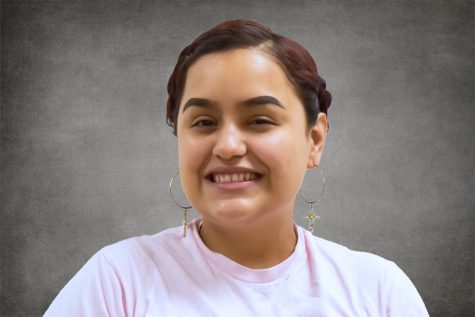Pilgrimage strengthens personal faith
Oct 9, 2019
Like many religions there are personal atonements, whether physical or emotional, adding a certain value to personal commitments.
During the days 8th-12th of Dhu al-Hijjah (month of pilgrimage), the last month in the Islamic calendar, the annual pilgrimage to the holiest land of Mecca in Saudi Arabia is carried out.
In the Gregorian Calendar the pilgrimage will span July 28, through Aug. 2.
In the Islamic religion, the five pillars of Islam are these fundamental beliefs — Shahadah, which is giving testimony that Allah is the one and only God; Salat, the ritual prayers; Zakat, helping the poor by paying taxes that will help them; Sawm taking place through Ramadan’s fasting; and most importantly is the Hajj, a once in a lifetime pilgrimage to the holy city of Mecca.
The Hajj must be individually performed by every Muslim man and woman at least once in their lifetime.
“It doesn’t matter what their race, ethnicity, their color, their age, nor what their gender is,” nursing major Maram Abdulla said. “Worldwide, Muslims unite with the same white garment ‘Ihram’ and with only one goal — seeking forgiveness from the almighty Allah,” During the Hajj, Muslims recall the prophet Ibrahim (also known as Abraham in the Christian bible) brought his wife and his son to Mekkah.
With no resources available, his wife ran between two hills called Safa and Marwa in search of water. As her son was kicking on the sand, she noticed a small spring of water sprouting by his foot.
The body of water was then known as the Zamzam water that still is running to this day.
It was here where the Kabba (a black cube shaped building) was built — the holy house of Allah.
“The Kabba is a black cubed building in Saudi Arabia where Muslims all around the world perform their prayers, five times per day, toward the Holy Kabba,” Abdulla said.
This once in a lifetime event is also done to create a special connection between Allah and His believers to ultimately acquire a sense of redemption and a cleansing of all sins.
Liberal arts, social and behavioral science major Nejwa Alghazali said, “The people that go to Hajj are going in order to have a spiritual connection to Allah, and they do that by going through many series of acts that are performed in Hajj. If Hajj is performed correctly and with good intentions, then their sins are wiped clean.”
Abdulla said, “That’s the ability of Allah and the power of the Hajj.”
Among the many preparations for the Hajj is the saving up of money. It all has to be well-earned and carefully planned.
Alghazali said, “The money used for Hajj has to be Hallal money, meaning the money can not be from anything prohibited in Islam.”
Since the Hajj is mandatory for all Muslims, there is a exemption for those who are mentally, or physically, unable to perform it.
Someone else can perform the Hajj with the intention of doing the pilgrimage for that person.
Noora and Esmail Alghazali, parents of Nejwa, said they felt this sense of calmness just entering Mecca and when they saw the Kaaba for the first time they cried.
After finally completing the fifth pillar of Islam they said they were extremely glad that their money was well spent.
They described the spiritual experience as “feeling the presence of Allah. They’re granting any of our prayers and pleads. And on the day of Arafat (second day of pilgrimage), we felt our sins being erased and our pains relieved.”


